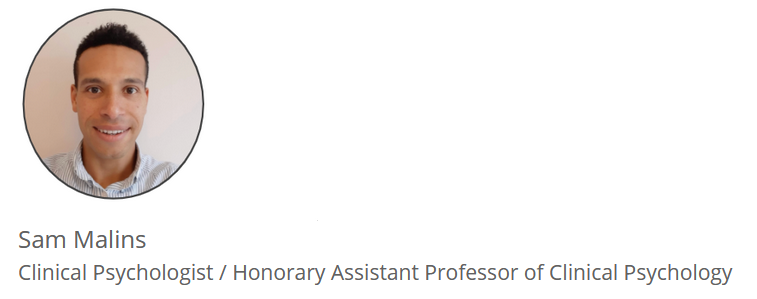
Sam Malins is a Clinical Psychologist working in Nottinghamshire Healthcare NHS Foundation Trust, University of Nottingham and Nottingham University Hospitals NHS Trust. Sam has been leading research and development with Flo for psychological therapies over a number of years, and has kindly shared his experience.
What is your background and role within your organisation?
I am a clinical psychologist working at the cross over between physical and mental health with specialist research training. So I spend my time developing and testing new interventions to improve mental health and delivering psychological therapies in clinical practice.
Where did you hear about & why did you want to use Flo?
In the least likely way! I happened to be at a presentation where someone was talking about how Flo was used to monitor blood pressure and other health measurements. Through a bit of thought and a very helpful collaboration between some patient advisors, clinicians, and the people at Simple, we realised that the technology could be adapted to support engagement with psychological therapies.
What did you set out to achieve with Flo and how did you go about it?
Although several psychological therapies are clinically effective, many people who seek help do not experience as much benefit as they could. Part of the reason for this is that psychological therapies can be hard going and sometimes people stop before they have got the most out of it. This is especially true for group psychological therapies for people who have long-term health problems. So we wanted to see if Flo could help people with cancer to get the most from an evidence-based group psychological therapy called Mindfulness-Based Cognitive Therapy (MBCT).
MBCT teaches participants a range of ways to be present to the moment, which can help reduce symptoms of anxiety and depression as well as reducing risk of future problems. However, MBCT involves around 45 minutes of home practice each day between sessions, which many people find a challenging task. We developed a way of giving patients tailored messages about the group theme each week and reminders of the home practice, so that they could engage as much or as little with it as they wished including personalised content specific to the group.
In a separate project we tested whether Flo could help people stay well for longer after psychological therapy by asking participants to imagine that they could send text messages to themselves in the future. We asked patients what advice they would give themselves from what they learnt in therapy if they were 1) doing well 2) experiencing early warning signs of relapse or 3) experiencing full relapse. We then fed these messages into Flo and asked patients to rate their wellbeing 0 to 5 each week, with 5 being the best and 0 being the worst. In response they received a message of their own advice tailored to their level of wellbeing.
Were there any surprises?
We were surprised by the size of the effect on dropout. When we compared the group of patients who used Flo during their group with those who did not, Flo users were much more likely to complete the programme than those who did not. In fact, the odds of completing MBCT were eight times greater for patients using Flo compared with non‐users. In addition, Flo users experienced 50% more improvement in symptoms of depression than non-users.
We also interviewed people about the experience afterwards. We were kind of expecting that people would say that Flo was a good reminder and a prompt, but they also said that it gave a sense of personal connection with the therapists and the group which surprised us.
In the relapse prevention project we thought that Flo might prevent relapse, but results suggested that in some areas it encouraged ongoing improvement in health, which we weren’t expecting.
How does Flo fit with your organisational vision/current strategies?
I am really keen to lower the bar for engagement with any behavioural change intervention. What I mean by that is that the people who actually seek help from services are a small proportion of the people who could benefit, but it takes a lot of effort and courage to go and ask for help. So my vision is that Flo can be both a bridge to help for people who would not otherwise get it and a way for everyone to get the most from their psychological care through personalisation of Flo messages, to the most meaningful information for the individual patient.
What do you consider your biggest success with Flo?
I really would not like to say! Mainly, because I feel like we have just scratched the surface with the work we have done so far and I feel we could do much, much more. In particular, I am excited by the potential to lengthen the benefits from psychological therapy so that they go far beyond the time of seeing a therapist. I also feel we can help many more people to stick with what can be a tough journey through psychological therapy, so that they can reap the benefits at the end.
How do you engage your clinicians and wider organisation with Flo?
I really think practice-based evidence is absolutely key. What I mean by that is collecting data on the most important outcomes in your service routinely and using it to see where Flo is making a difference. Showing this evidence has been the best way of engaging people and it is really at the heart of what I want to know as a clinician and a researcher.
What are the future plans with Flo?
We are currently putting together a proposal to see if we can link together the different ways we have used Flo in psychological therapies to run a clinical trial. Then we can see if it helps more people recover from anxiety and depression, long-term and how clinicians find using Flo in this way.
#Psychology #Mental Health #Research #Practice-based Evidence #Nottingham #TotallyUnique
